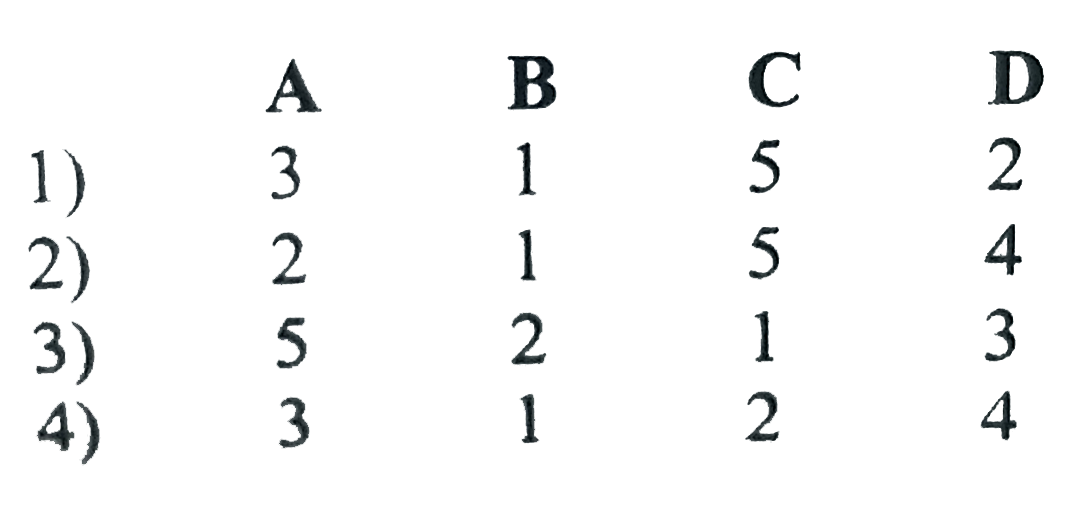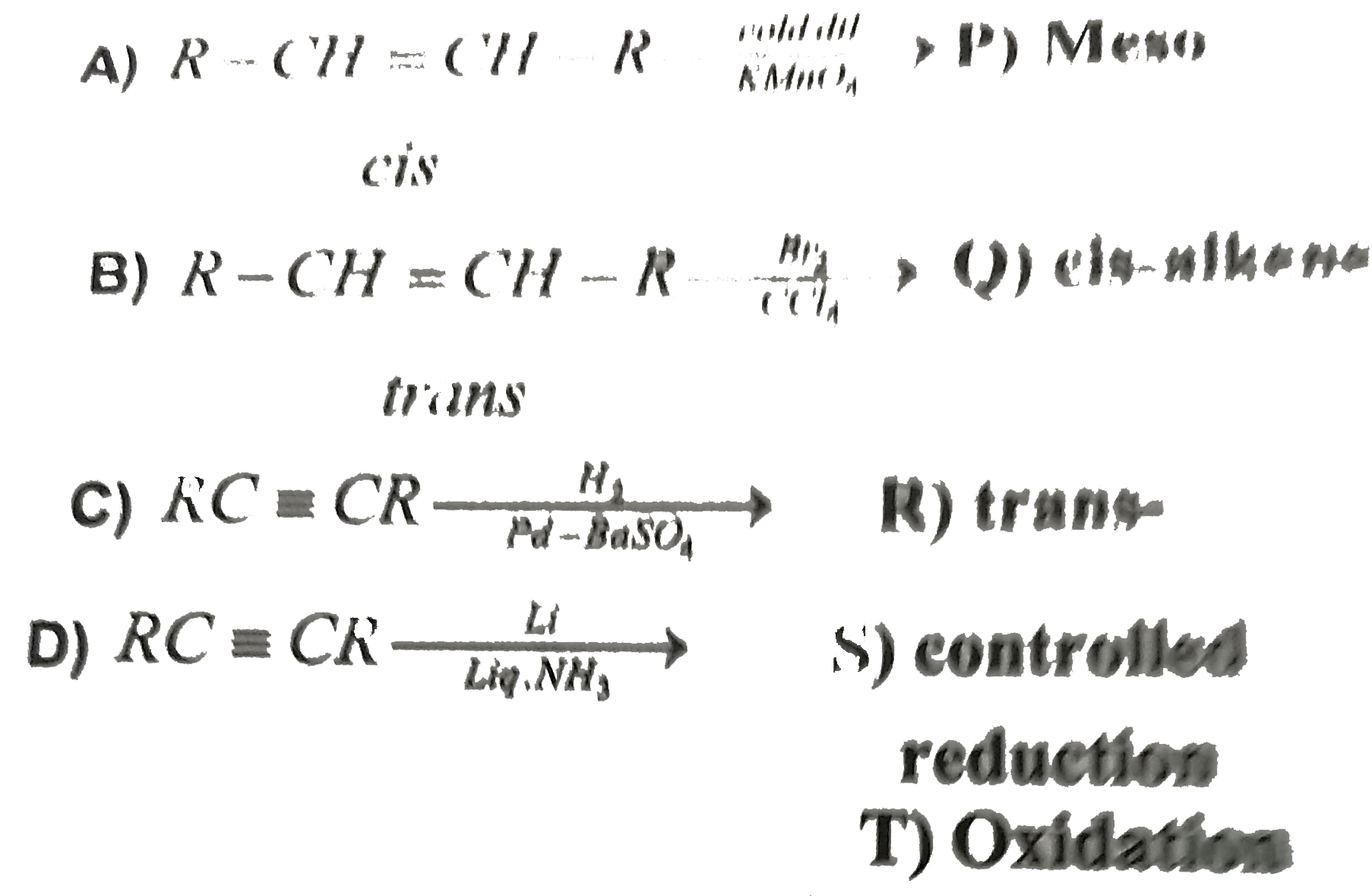A primary alkyl halide would prefer to undergo :-
SN1 reaction
SN2 reaction
α-Elimination
Racemisation
The correct Answer is:B
Primary alkyl halide would prefer to undergo SN2 reaction.
Topper's Solved these Questions
- BOOK - MODERN PUBLICATIONCHAPTER - HALOALKANES AND HALOARENESEXERCISE - NCERT examplar Problems (Multiple Choice Questions (Type-II))12videos
HALOALKANES AND HALOARENES
- BOOK - MODERN PUBLICATIONCHAPTER - HALOALKANES AND HALOARENESEXERCISE - NCERT examplar Problems (Short Answer Type Questions)21videos
HALOALKANES AND HALOARENES
- BOOK - MODERN PUBLICATIONCHAPTER - HALOALKANES AND HALOARENESEXERCISE - NCERT Textbooks Exercise21videos
HALOALKANES AND HALOARENES
- BOOK - MODERN PUBLICATIONCHAPTER - EQUILIBRIUMEXERCISE - Unit Practice Test13videos
EQUILIBRIUM
- BOOK - MODERN PUBLICATIONCHAPTER - HYDROCARBONSEXERCISE - UNIT PRACTICE TEST15videos
HYDROCARBONS
Similar Questions
Knowledge Check
- Question 1 - Select One
Alkyl halide are-
AMono halogen derivatives of alkanesBTrihalogen derivatives of alkanesCDi halogen derivatives of alkanesDTetra halogen derivatives of alkanes - Question 2 - Select One or More
Alkyl halides are :
AMonohalogen derivatives of alkanesBDihalogen derivatives of alkanesCTrihalogen derivatives of alkanesDTetrahlogen derivatives of alkanes - Question 3 - Select One
Terminal alkynes hafvfe a acidic hydrogn/s. sodium salt of terminal alkynes behave as nucleophile as well as strong base. For primary alkyl halides it well as strong base. For primary alkyl halides it behave as nucleophile. Thus primary alkyl halides give SN reaction with its salt. Alkynes undergo give SN reaction with its salt. Alkynes undergo electrophilic as well as nucleophilic addition reaction. they also undergo hydroboration, oxidation and ozonolysis.
Q. CH3C≡CH+HOX(2equ.)→Y. Y isACH3COCHX2BCH3COCH3CCH3COCOOHDCH3CHXCHO
The reaction of primary alkyl halide with nitrile salt produces both RNO2 and RONO. Account for this behaviour.
View SolutionTerminal alkynes hafvfe a acidic hydrogn/s. sodium salt of terminal alkynes behave as nucleophile as well as strong base. For primary alkyl halides it well as strong base. For primary alkyl halides it behave as nucleophile. Thus primary alkyl halides give SN reaction with its salt. Alkynes undergo give SN reaction with its salt. Alkynes undergo electrophilic as well as nucleophilic addition reaction. they also undergo hydroboration, oxidation and ozonolysis.
Q. The correct match isView Solution
The correct match isView SolutionTerminal alkynes hafvfe a acidic hydrogn/s. sodium salt of terminal alkynes behave as nucleophile as well as strong base. For primary alkyl halides it well as strong base. For primary alkyl halides it behave as nucleophile. Thus primary alkyl halides give SN reaction with its salt. Alkynes undergo give SN reaction with its salt. Alkynes undergo electrophilic as well as nucleophilic addition reaction. they also undergo hydroboration, oxidation and ozonolysis.
Q. View Solution
View SolutionTerminal alkynes hafvfe a acidic hydrogn/s. sodium salt of terminal alkynes behave as nucleophile as well as strong base. For primary alkyl halides it well as strong base. For primary alkyl halides it behave as nucleophile. Thus primary alkyl halides give SN reaction with its salt. Alkynes undergo give SN reaction with its salt. Alkynes undergo electrophilic as well as nucleophilic addition reaction. they also undergo hydroboration, oxidation and ozonolysis.
Q. When 1-pentyne is treated with dil. H2SO4 and HgSO4 the product formed isView SolutionWhich alkyl halide would be preferred for the synthesis of the following ether by Williamson synthesis ?
H5C2−O−CH3∣C∣CH3−HView Solution

